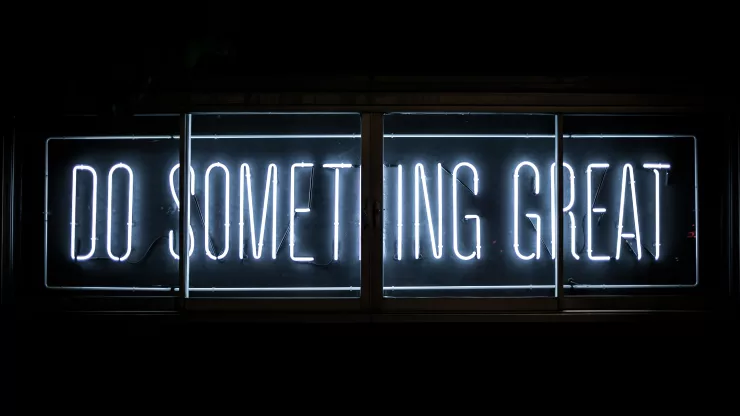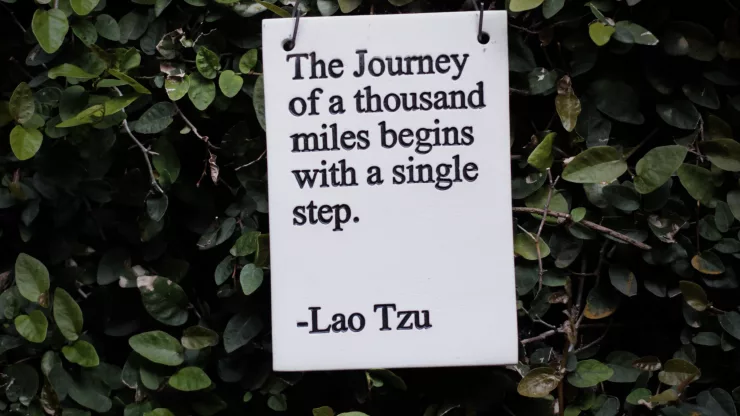Personal obstacles can be a significant barrier to achieving self-improvement. Whether it’s a lack of confidence, fear of failure, or negative self-talk, these obstacles can prevent us from reaching our potential.
Overcoming personal obstacles is essential for personal growth and development. In this detailed guide, we will explore the importance of overcoming personal obstacles for self-improvement and provide strategies for identifying, addressing, and overcoming them.
Jump to Section
Introduction
Overcoming personal obstacles is crucial for achieving self-improvement. Personal obstacles can hold us back from achieving our goals and living the life we desire.
By identifying and addressing these obstacles, we can develop a positive mindset, build resilience, and take action towards our goals.
This guide will provide a comprehensive understanding of personal obstacles, strategies for overcoming them, and maintaining self-improvement.
Understanding Personal Obstacles
Identifying Personal Obstacles
Identifying personal obstacles is the first step towards overcoming them. Common personal obstacles include fear of failure, lack of self-confidence, negative self-talk, procrastination, and perfectionism.
To identify personal obstacles, self-reflection exercises can be helpful. Start by asking yourself questions such as:
- What are my biggest fears?
- What negative self-talk do I engage in?
- What are the things I procrastinate on, and why?
- What are the areas of my life where I lack confidence?
The Root Causes of Personal Obstacles
Personal obstacles are often rooted in past experiences and beliefs. Childhood experiences, negative self-talk, and limiting beliefs can shape personal obstacles.
To overcome personal obstacles, it is essential to identify their root causes. Strategies for identifying the root causes of personal obstacles include journaling, therapy, and talking to trusted friends or family members.
Overcoming Personal Obstacles
Developing a Positive Mindset
Developing a positive mindset is essential for overcoming personal obstacles. A positive mindset helps us focus on our strengths and solutions rather than our weaknesses and problems.
Techniques for developing a positive mindset include practicing gratitude, positive self-talk, visualization, and affirmations.
Building Resilience
Building resilience is crucial for overcoming personal obstacles.
Resilience helps us bounce back from setbacks and challenges and stay motivated towards our goals.
Strategies for building resilience include practicing self-compassion, developing a growth mindset, and seeking out challenges.
Seeking Support
Seeking support is essential for overcoming personal obstacles. Support can come in many forms, including therapy, coaching, mentorship, and support groups.
The benefits of seeking support include gaining new perspectives, accountability, and encouragement.
Taking Action
Taking action is crucial for overcoming personal obstacles. Action helps us move past our fears and doubts and towards our goals.
Strategies for taking action include breaking down goals into smaller steps, creating a plan, and holding oneself accountable.
Maintaining Self-Improvement
Setting Realistic Goals
Setting realistic goals is essential for maintaining self-improvement.
Setting unrealistic goals can lead to frustration and burnout, while achievable goals can provide a sense of accomplishment and motivation.
Techniques for setting achievable goals include SMART goal setting and breaking down larger goals into smaller steps.
Tracking Progress
Tracking progress is essential for maintaining self-improvement. It helps us stay motivated and identify areas where we need to improve.
Tools and techniques for tracking progress include journaling, creating a vision board, and using apps or software to track progress.
Self-Care for Continued Growth
Self-care is crucial for maintaining self-improvement. It helps us stay motivated, reduce stress, and improve overall well-being.
Strategies for practicing self-care include getting enough sleep, exercising, practicing mindfulness, and engaging in hobbies or activities that bring joy.
Conclusion
Overcoming personal obstacles is crucial for achieving self-improvement. By identifying personal obstacles, developing a positive mindset, building resilience, seeking support, and taking action, we can overcome personal obstacles and achieve our goals.
Maintaining self-improvement requires setting realistic goals, tracking progress, and practicing self-care. Remember, self-improvement is a journey, and it takes time and effort.
Keep moving forward, and you will see progress.
FAQ
What if I don’t know what my personal obstacles are?
If you’re struggling to identify your personal obstacles, try talking to a trusted friend or family member, journaling, or seeking out professional help.
How do I stay motivated during the self-improvement process?
Staying motivated can be challenging, but setting achievable goals, tracking progress, and seeking support can help. Remember to celebrate small wins along the way and practice self-care.
What if I experience setbacks in my self-improvement journey?
Setbacks are a natural part of the self-improvement journey. Instead of giving up, try to learn from the setback and adjust your approach.
Seek support if needed, and remember that progress takes time.

With a deep passion for personal development, Ben has dedicated his career to inspiring and guiding others on their journey towards self-improvement.
His love for learning and sharing knowledge about personal growth strategies, mindfulness, and goal-setting principles has led him to create My Virtual Life Coach.
Contact Ben at [email protected] for assistance.




